
StandICT.eu 2023 has planned a total of nine Open Calls for the duration of the 36-month project. The call topics are listed in conjunction with the annual ICT Rolling Plan of Standardisation supported by the Multi Stakeholder Platform and our esteemed External Advisory Group and synergy partners, as well as Standard Development Organisations (SDOS) who contribute on an ad-hoc basis with timely suggestions for topics. Our themes around our calls wish to embrace the "Global Challenges and European Industrial Competitiveness" supported by the Strategic Plan for Horizon Europe.
The impact of standardisation in research supports the access to and uptake of innovative solutions in the EU industry, notably in SMEs, and society to address global challenges, including climate change and the Sustainable Development Goals (SDGs), where Standards are crucial to advance on innovation. Health, Culture, Creativity and Inclusive Society, Civil Security for Society, Digital, Industry and Space, Climate, Energy and Mobility and Food, Bioeconomy, Natural Resources, Agriculture and Environment are all pillars where applications would be welcomed.
The European Partnerships that have been set up by the European Commission include clean aviation, hydrogen, circular economy for the environment, railway, innovative medicines, global health and measurement systems are also topics you may consider to address.
* NB. All applications that are related to the list of the topics addressed in each individual call list are eligible for funding and equally valid. Do contact us should you require any further questions about your application at info@standict.eu.
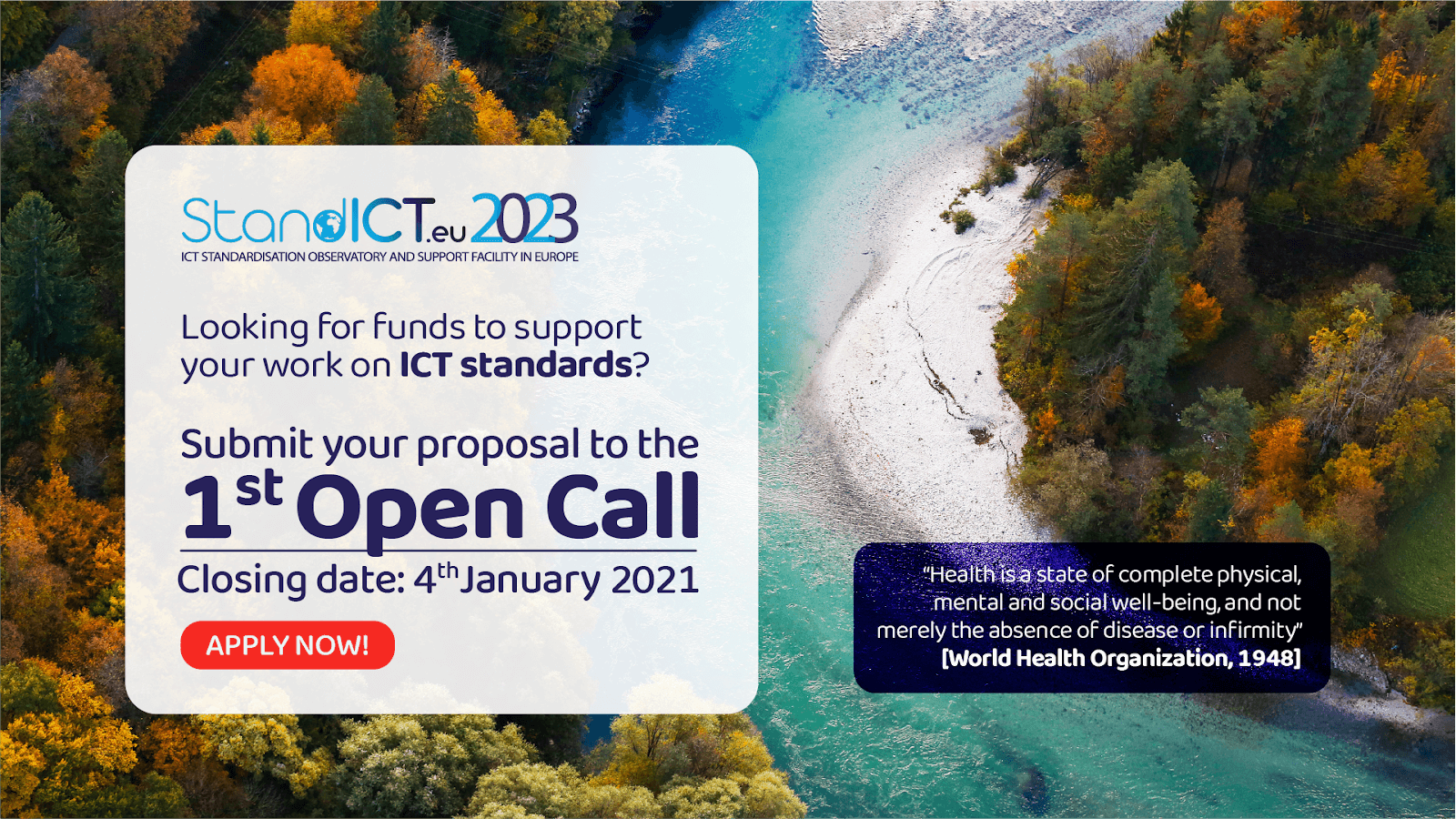
Call 1 Closing date 4th January 2021 identified “Health”
The adoption of eHealth and telemedicine applications demand conformance with standards to help increase interoperability among systems and help safeguard security and privacy.
Digital Health is an evolving concept and according to the World Health Organization (WHO), "digital health, or the use of digital technologies for health, has become a salient field of practice for employing routine and innovative forms of information and communications technology (ICT) to address health needs."
Discover more

Open Call 2 focuses on Culture, Creativity and Inclusive Society,
aims to meet EU goals and priorities on enhancing democratic governance and citizens participation, and safeguarding and promotion of cultural heritage, and to respond to multifaceted social, economic, technological and cultural transformations. Activities will contribute to expanding civic engagement, boosting transparency, accountability, inclusiveness and legitimacy of governance, improving levels of trust and tackling political extremism.
We welcome ICT Standards applications related to Trusted Information which is a timely discussion that requires urgent attention as it threatens the foundations of democracy, business and the entire justice system. Applications that support the Digital Services Act, launched by the European Parliament in December 2020 as well as activities around the automation of disinformation, ID cards, cryptographic capabilities, AI-enabled automation and more will be welcomed.
Discover more
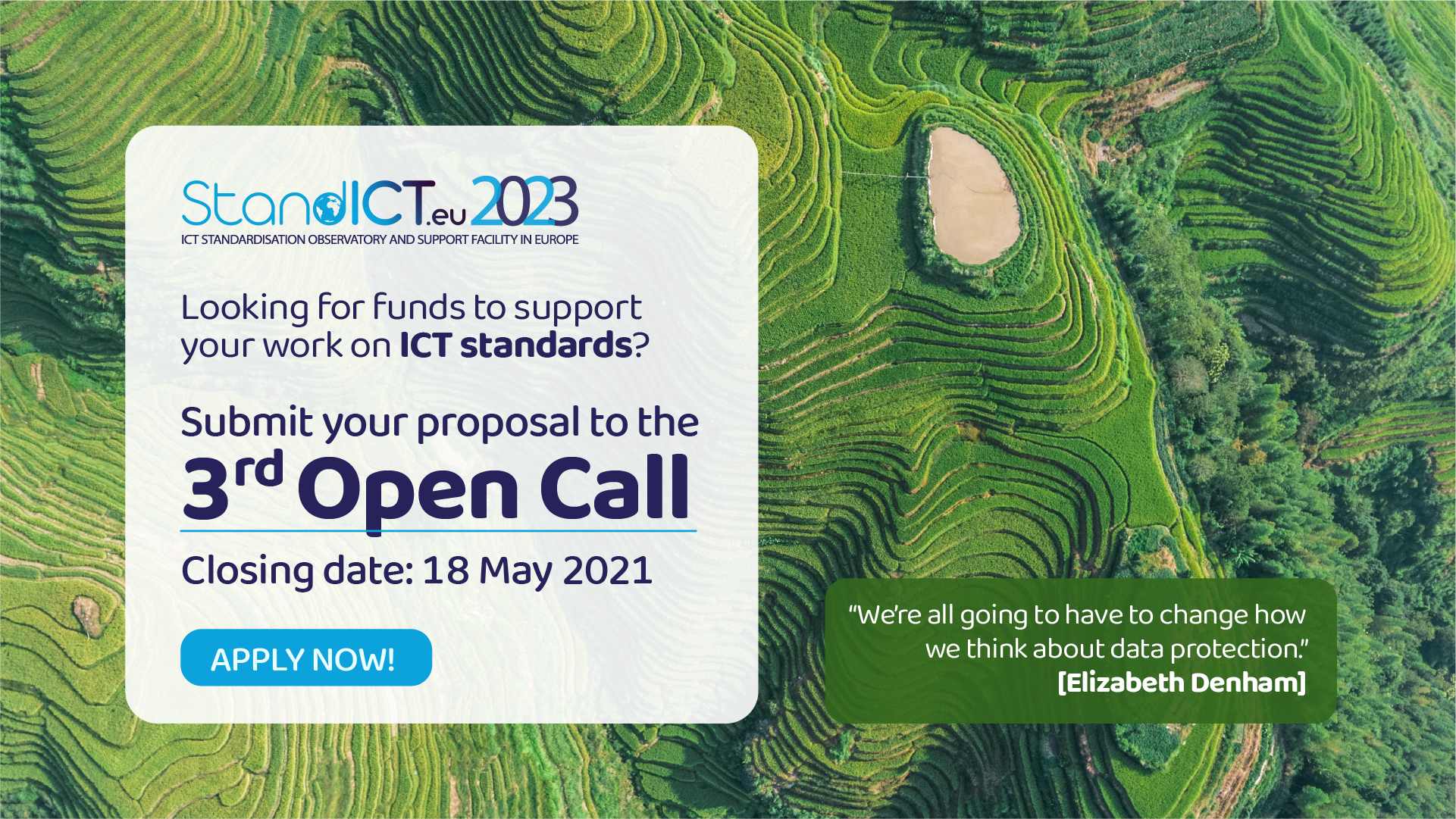
Open Call 3 focus topic is linked to Theme 3: Civil security for Society
Europeans must find ways to sustain European innovative businesses to seek ways to commercialize standards and bring them into new value chains. Standards allow us to go cross boundaries, to fuse together nature-based solutions, this is why innovation in the climate domain is critical to enable the creation of a genuine design of the ecosystem so profoundly important in today’s digital-driven society.
Discover more
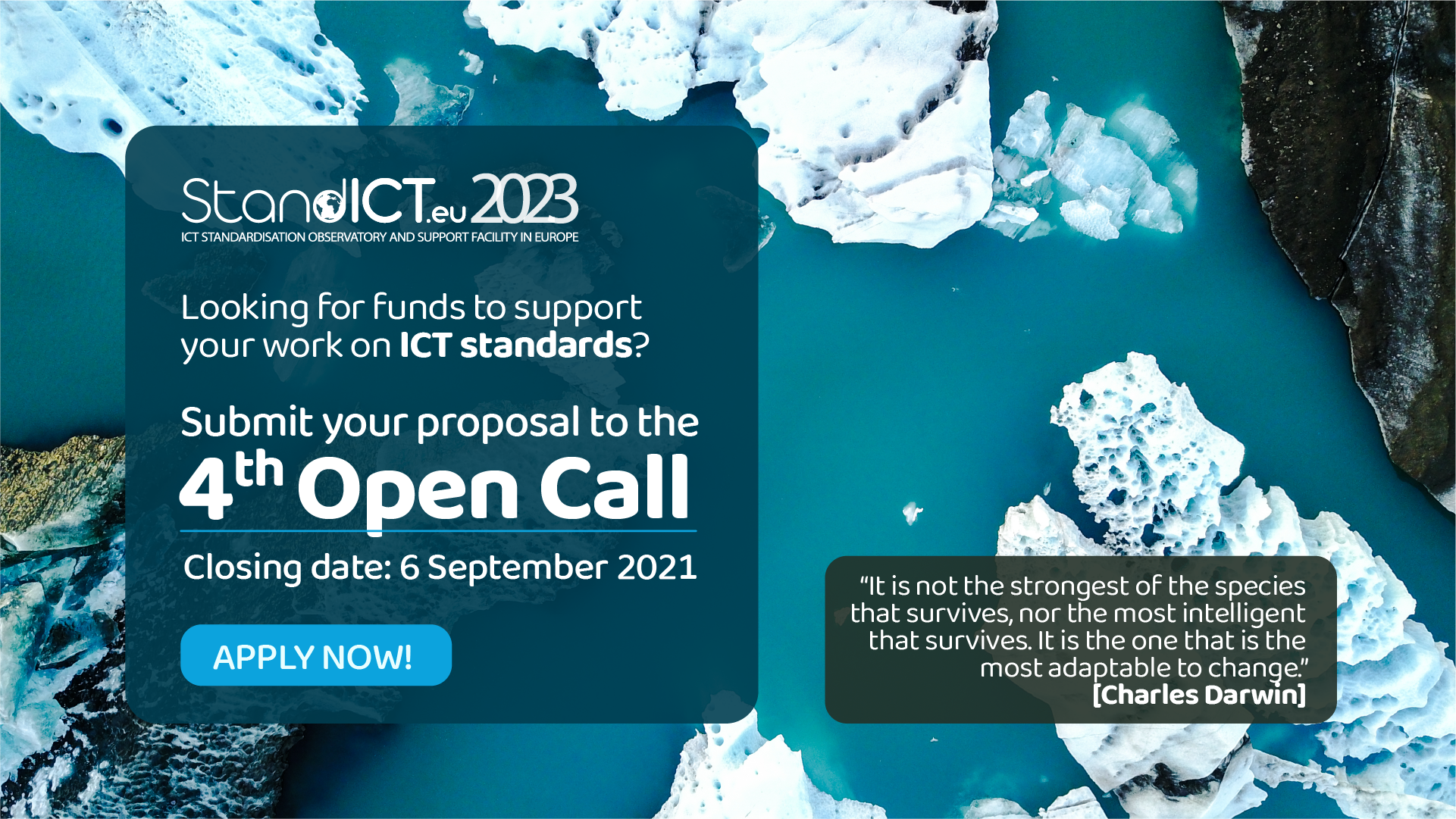
Theme 4 - Digital, Industry and Space
Standards are increasingly seen as a bridge between research, innovation, and the market, and as a means of capturing and disseminating knowledge.
The development of open technical specifications and standards that aim to represent European values and ethics, strengthen the take-up, scalability cross-border and cross-sector interoperability of their technological solutions, as well as decreasing the costs of technical due diligence on the private and public procurers.
Discover more
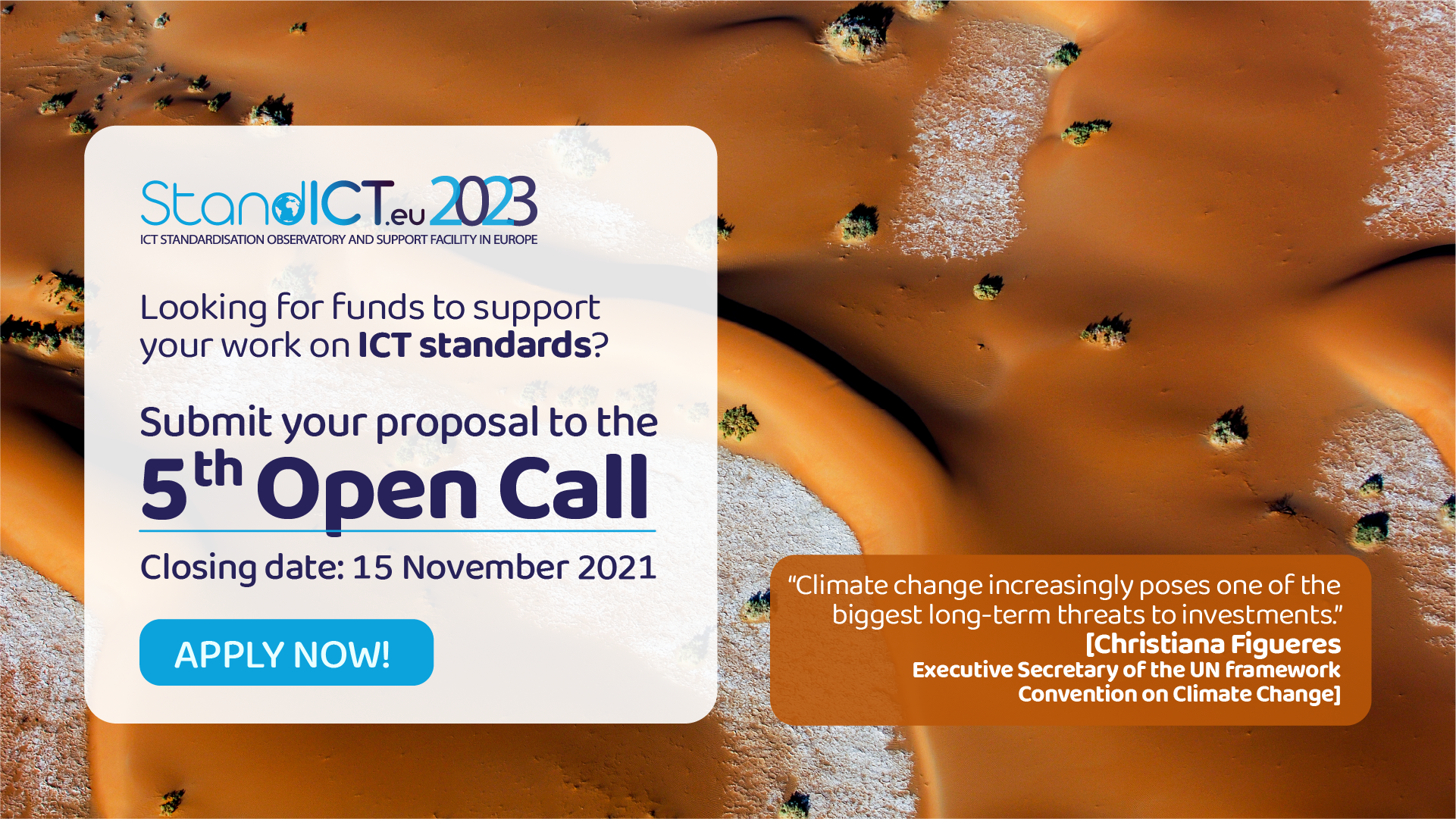
Theme 5 - Climate, Energy and Mobility
The EU Commission has set a global climate target of net-zero by 2050. The European Green Deal recognizes the importance of standards: “As the world’s largest single market, the EU can set standards that apply across global value chains. The Commission will continue to work on new standards for sustainable grow mt-4 mb-4th and use its economic weight to shape international standards that are in line with EU environmental and climate ambitions”1.
The energy domain is entering an era of considerable changes, mainly driven by two major factors: the energy system becoming consumer-centric and the ongoing digital transformation of the energy sector.
ICT standards may support in promoting digital solutions for climate risks by both promoting the positive potential of digital technologies to reduce CO2 emissions and resource use in other industries as well as reducing the grow mt-4 mb-4ing contribution of ICT to CO2 emissions and material use (particularly rare metals) due to both infrastructure (eg data centre) and ICT Devices 2.
Discover more
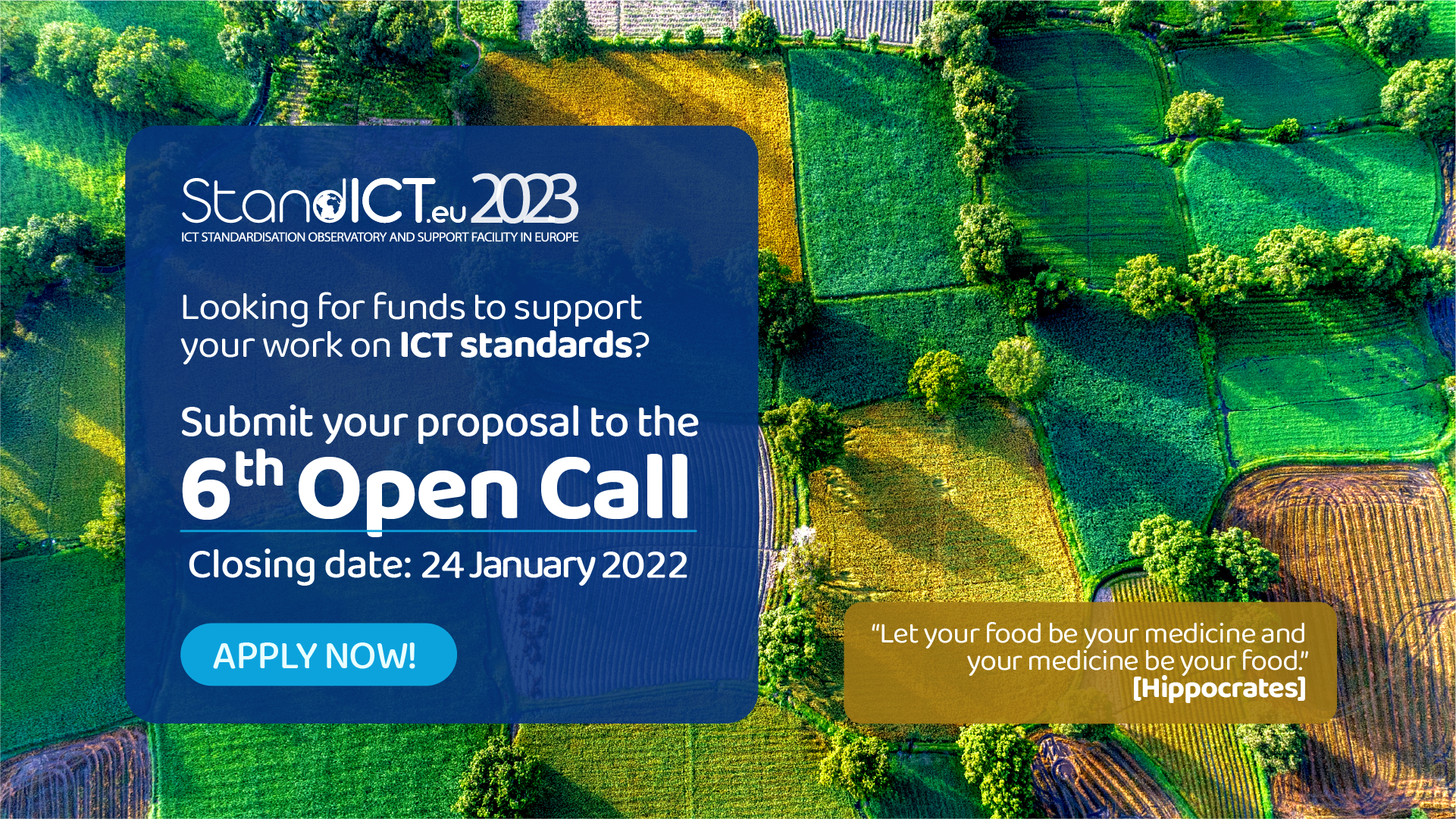
Theme 6 - Food, Bioeconomy, Natural Resources, Agriculture and Environment
Over the past 15 years, ICTs have begun transforming the natural resources sector in an unprecedented way. With agriculture becoming increasingly data-driven, access to timely, accurate information is critical for farmers to make the most of their resources in often changing circumstances.
Applications may seek to facilitate ICT-centric innovation activities that strengthen national and regional agricultural competitiveness and that could promote and facilitate the development of e-Agriculture policies, strategies and plans, enabling ICT innovation and ICT standards to advance sustainable agriculture. smart agriculture, and disaster-prevention which are key to preserve rural livelihoods and foster community resilience.
Discover more
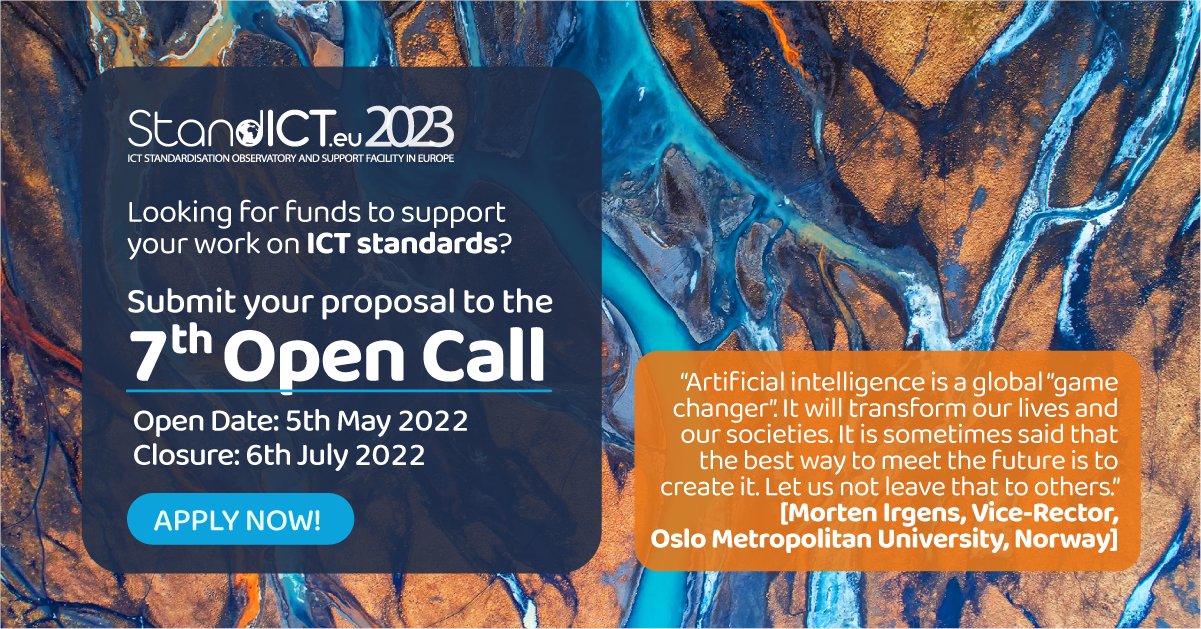
Theme 7 - Artificial INtelligence, Data and Robotics
The European Commission effort and investment on AI, Data and Robotics aims at using Industrial Data and responsible and trustworthy Industrial AI to open opportunities for Europe to strengthen its position. Europe can play the pacemaker role because particularly in Europe the required domain know-how is available, and it can rely on a powerful ecosystem of SMEs, big companies, research and technology institutes, and renowned experts.
Discover more
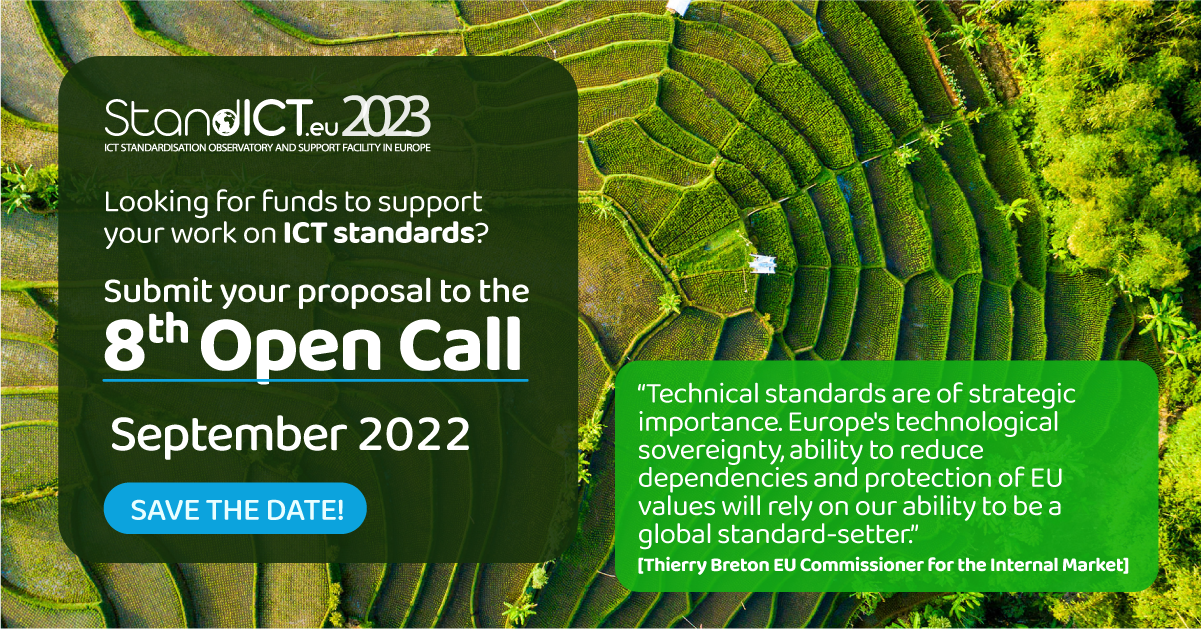
Theme 8 - Resilience and Green Transition
Climate change and environmental degradation are an existential threat to the European Union and to the world. To overcome these challenges, the European Green Deal is Europe's new growth strategy, which will transform the Union into a modern, resource-efficient and competitive economy. The European Green Deal aims to make Europe climate neutral by 2050, boost the economy through green technology, create sustainable industry and transport, and cut pollution. Turning climate and environmental challenges into opportunities will make the transition just and inclusive for all.
Discover more
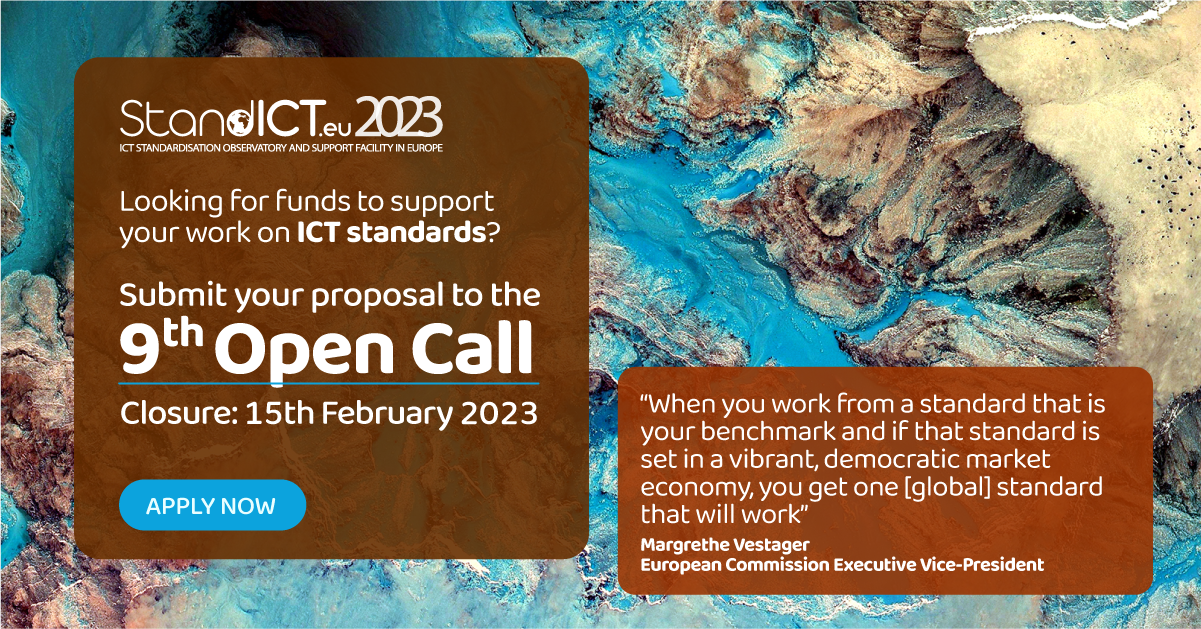
Theme 9 - IoT, Cloud and Edge
The Internet of Things (IoT) is a network of connected digital devices, sometimes known as “smart” devices, with its related research encompassing domains like AI, 5G, cloud computing, blockchain, and micro- or nano-systems. What has recently changed is the augmented capabilities of devices, faster communication networks, the standardisation of communication protocols and more affordable sensors and microelectronic devices, which is turbocharging the IoT phenomena.
Discover more
1.See Communication from the Commission to the European Parliament, the European Council, the Council, the European Economic and Social Committee and the Committee of the Regions: The European Green Deal
2.https://ec.europa.eu/digital-single-market/en/news/shaping-digital-transformation-europe
3. https://ec.europa.eu/digital-single-market/en/energy
